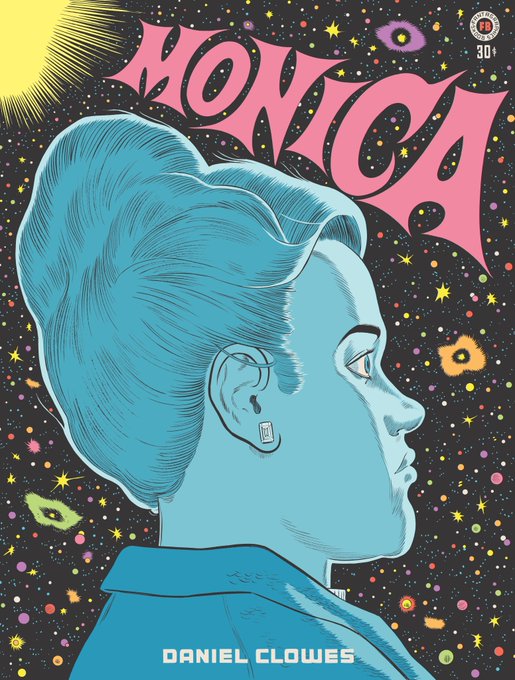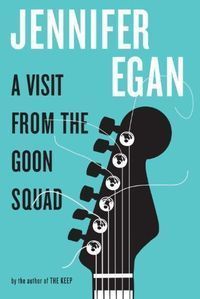
Set in the heart of the pandemic, Hari Kunzru’s “Blue Ruin” is a meditation on a life in art, exploring the hazy spectrum between compromising, committing, quitting.
Our title character, Jay, seems like he belongs in that last bin as we start the novel. He’s delivering groceries and sleeping out of his car, still sick from an early bout of COVID that got him kicked out of his New York City squat.
Fulfilling an order at a cozy estate upstate, he recognizes an old face behind a mask. It’s his ex, Alice. They haven’t seen each other in decades, but seeing his condition, she practically drags him to crash at an old barn tucked away on the site. It’s an impulsive act of kindness, one that triggers a reevaluation of their art-school days in late ’90s London–and possibly a reckoning too.
Alice, it turns out, is married to Rob. Now a well-known painter, Rob is formerly an art school friend/rival of Jay’s…and the man she left him for. As Jay recovers, we discover how the group met, flashing back to squats and hash and the jousting of young egos before returning to the diminished circumstances of May 2020.
Kunzru does a good job evoking the excitement of the past and the dual slog of the pandemic and middle age. Jay can’t stay hidden on the estate forever. The absentee tech-guru owner has a state-of-the-art security system that’s eventually called into service. When Jay finally meets the rest of the pod taking shelter there–Rob, art-dealer Marshall and Marshall’s girlfriend, Nicole–the drama deepens.
Can Jay’s appearance really be a coincidence? What has he done since he disappeared decades ago? Is Jay still making art? And can Rob get his act together to finish some paintings before his family, and possibly Marshall, go broke?
As a COVID-era novel set among an isolated upstate crew of creatives, “Blue Ruin” can’t help but be compared to Gary Shteyngart’s, “Lake Success,” a much funnier book covering similar terrain. Still, Kunzru does strong work capturing the dichotomies of the art world. One scene conveys the absurdity of scrabbling for sales; another convinces you that a life lived for art may be worth the sacrifice.
Kunzru’s characters feel more like “types” than individuals. This is the kind of book where people say things like, “So there we are, another white man wanting to burn down the world to salvage his fragile ego.” Each role is structured to illustrate a point the author wants to make, and it feels on the nose, even if it’s not necessarily off the mark.
This makes sense, though, because “Blue Ruin” is a book of ideas: about art and striving, rich kids and poor kids, what happens when we succeed and what happens when we fail. It’s engaging and well crafted, particularly if you’re interested in the underlying concept.
Quotes
“There are really only two kinds of artist. You’re either an intellectual or a savage, and you don’t really have a choice about which. Rob was a savage, of course. He liked to approach making things in the manner of a hominid discovering tools. What you have to do, he said, is paint like you’ve never painted before, like you’re seeing color for the first time. I did my best to emulate him, but it was no good. For me, making art was inescapably cerebral. I approached it as a problem, a puzzle that I needed to solve. I was ashamed of that. It felt like a dirty secret, a creative weakness that I had to hide.”
***
“Alice’s competence had survived even the last year of our relationship, when we were actively trying to crash and burn, to let ourselves go to hell. It was a kind of weakness in her. If you’re a problem-solver, sooner or later people learn that they can bring their problems to you, and after that you’re never free.”
***
“She was a rich person, used to interactions in which she was respected, even courted. On the rare occasion when her status wasn’t recognized–by some official or service provider–it was, I imagined, a memorable outrage. She’d find it hard to understand that I had no relationship with the company outside terms set by the app. It was designed that way. Even if you stayed on the phone for hours and finally got to speak to someone in a far-away call center, they had no agency. You could never appeal to anyone’s humanity.”
***
“To twenty-something me, an artist was primarily someone who was trying not to get captured. The world was dominated by the interests of the rich and powerful. It was organized to lure you, to trick you into their service. An artist ought, I thought, to live like a spy, a spiritual fugitive. Art itself consisted of finding ways to say no, to become invisible to power. Only then could an artwork have any claim to authenticity. Even if you found it difficult, or it caused friction with others, it was necessary to refuse entanglements, because they were a way to force you to conform. When I wouldn’t speak to anyone and locked myself in my studio, I was holding a line, taking my vocation seriously. In practical terms, it amounted to the same thing. Rob and I both expected other people to pick up after us. Of the two of us, I was probably the more self-righteous about it.”
***
“‘The artworld likes nothing better than someone who doesn’t seem to want it. That’s always been my problem. They can smell it on me. It’s a dirty smell.'”



